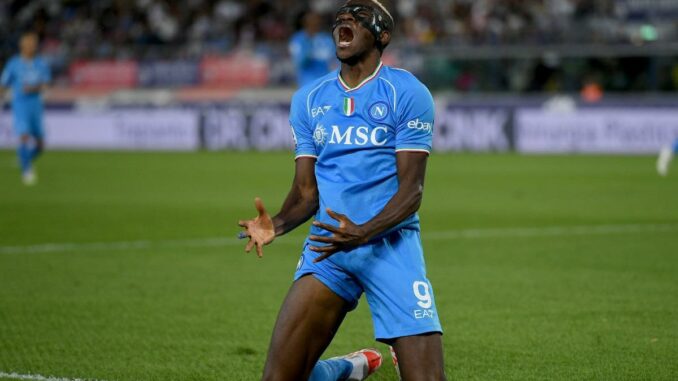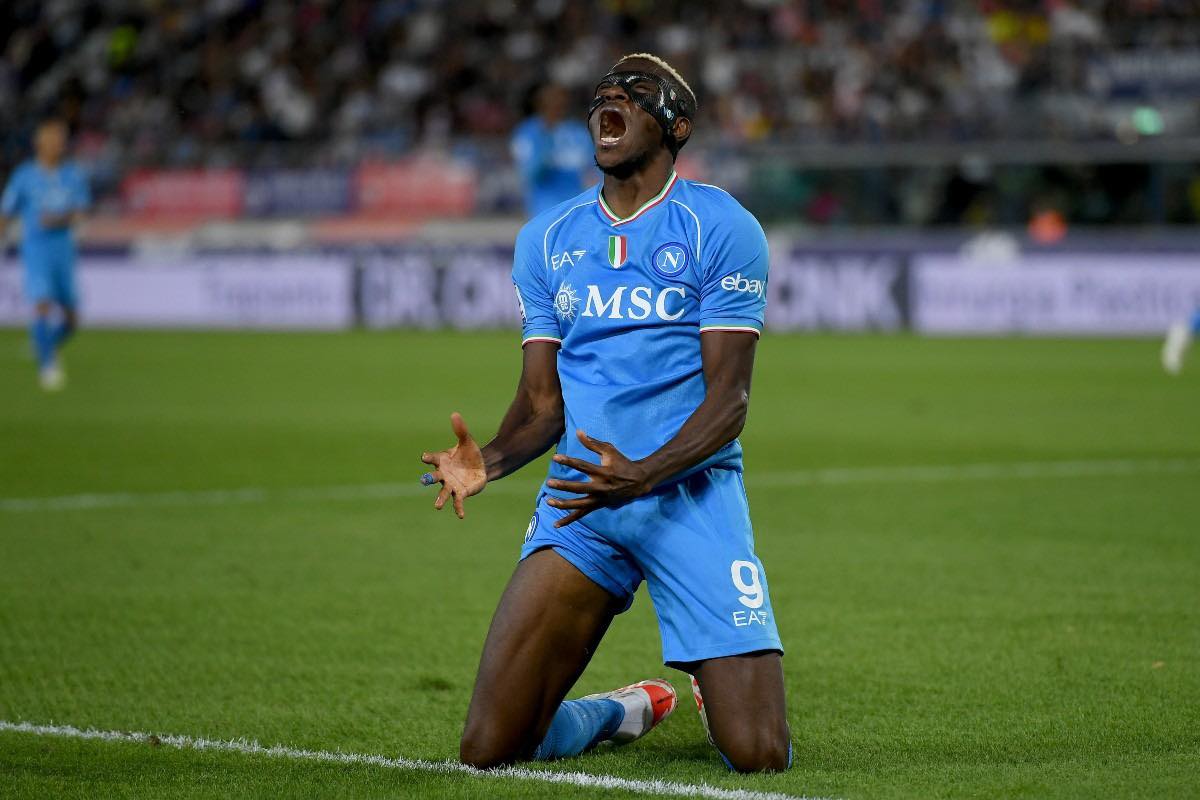

The world of football is no stranger to off-pitch controversies, and with the ubiquity of social media, the lines between professional conduct and personal expression have blurred like never before. The recent case involving Napoli’s star forward, Victor Osimhen, exemplifies this delicate balance.
In the aftermath of Napoli’s frustrating draw against Bologna, tensions were understandably high. However, the storm that followed on social media escalated the situation, drawing the attention of fans, pundits, and the Napoli management. Addressing the issue, Napoli’s head coach Garcia lamented, “We were frustrated after the draw vs Bologna, then some awkward things on social media didn’t help us in the last two days.”
For a team of Napoli’s stature, maintaining focus on their objectives is paramount. Distractions, especially of a controversial nature, can disrupt the team’s momentum, affecting not just individual players but the collective spirit of the squad. Recognizing the importance of this, Garcia promptly intervened to ensure his team remained undistracted.
“I spoke to Victor, it’s key to have him focused on the game — he’s gonna do his best for Napoli,” Garcia remarked. The coach’s statement highlights a nuanced understanding of modern football management. Today’s managers must not only be tacticians but also adept at handling the personal and digital lives of their players.
Victor Osimhen, a Nigerian international, is a vital cog in Napoli’s attacking machinery. His dynamism, pace, and goal-scoring prowess have made him an invaluable asset for the Italian club. Given his prominence, any off-field distractions involving him can have a ripple effect on the team’s morale and performance.
Garcia’s approach in handling the situation is commendable. Instead of escalating matters or resorting to punitive measures, he chose to engage in a dialogue with Osimhen. This is a clear testament to his man-management skills. By emphasizing the importance of focus and commitment to the team, Garcia not only reinforced the club’s values but also showed trust in Osimhen’s professionalism.
However, the incident also underscores a broader issue in contemporary football: the role of social media. Players, like any other individuals, have the right to express themselves on digital platforms. Yet, the scrutiny they face is exponentially higher. Every post, tweet, or story is dissected, often leading to unintended controversies.
Clubs and managers are now grappling with the challenges of guiding their players on responsible social media use without infringing upon their personal freedoms. Incidents like the Osimhen case serve as a reminder that, in today’s digitized world, football battles aren’t just fought on the pitch but also in the virtual realm.
In conclusion, as Napoli moves forward from the recent controversy, two things are clear. Firstly, under the astute leadership of Garcia, the team is in capable hands, equipped to handle the pressures of modern football, both on and off the field. Secondly, the Osimhen incident is not just a standalone case. It’s reflective of the larger challenges that football clubs, players, and managers face in the age of social media. As the boundaries between personal and professional continue to blur, the footballing world must evolve, striking a balance that respects individual freedom while upholding the collective spirit and objectives of the team.
Leave a Reply